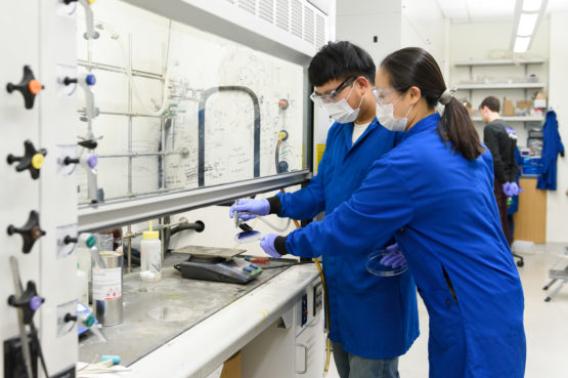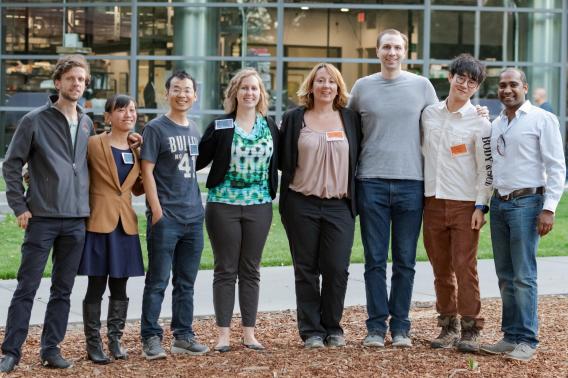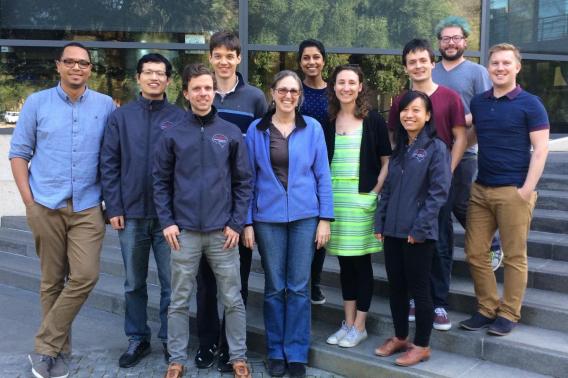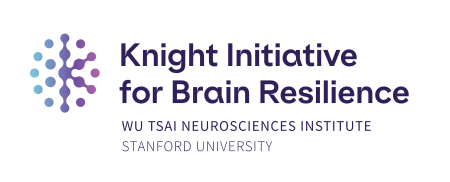Our postdoctoral scholars program provides research support and a community of mentors and peers to extraordinary Stanford postdocs advancing our understanding of the mind and brain in health and disease.
The Wu Tsai Neurosciences Institute's Postdoctoral Scholar Awards support innovative, collaborative and creative postdoctoral researchers from across Stanford who are pursuing novel, multi-disciplinary approaches to understanding the workings of the mind and brain. In addition to receiving research funding, scholars meet regularly for workshops, journal clubs and other activities that allow them to learn from one another’s varied research and personal backgrounds and establish community and collaborations. These Interdisciplinary Postdocs and Brain Resilience Scholars will advance our knowledge of brain health and aging.
Program Tracks
Interdisciplinary Postdoctoral Scholar Award
Since 2015, the Wu Tsai Neuro's Interdisciplinary Scholars track has supported innovative young researchers with backgrounds in basic and clinical neurosciences, biomedical sciences, physical sciences, social sciences, engineering, education, law, business and humanities who are engaged in cutting edge interdisciplinary research in the neurosciences, broadly defined.
Brain Resilience Postdoctoral Scholar Award
Since 2023, the Brain Resilience Postdoctoral Scholars award of the Knight Initiative for Brain Resilience supports trainees generating paradigm-shifting insights on the mechanisms of neurodegeneration and how to maintain brain resilience into old age.
Application
This program is open to current Stanford postdocs. Our next postdoc applications will open in summer 2024.
Funded Interdisciplinary Postdoctoral Scholar projects
Multifunctional vascular-like electronics for integration and monitoring of human neural organoids
This study will introduce a vascular-like electronic system that merges seamlessly with neural organoids, establishing an integrated vascular-electronic-neural network. This envisaged platform holds the promise of heralding a transformative phase in the evolution of human neural organoid research and elucidating the fundamental understanding on the roles of oxygen and nutrient perfusion during neural development.
Using nanoelectrodes to measure brown adipose tissue sympathetic nerve activity in vivo
Everyone is well aware of their white adipose tissue and its ability to store excess energy as fat. In fact the efficiency with which it does this has led to obesity and related metabolic diseases becoming the largest single health burden in the United States.
Neuronal mechanism underlying spatial navigation in cephalopods
Cephalopods, including the cuttlefish, octopus, and squid, possess one of the most advanced nervous systems among invertebrates. With their advanced nervous systems, cephalopods are able to perform sophisticated behaviors such as navigating in open water to search for food. Yet how their nervous systems accomplish spatial navigation remains completely unknown.
In vivo analysis of cAMP dynamics in developing glial cells
Cyclic adenosine monophosphate (cAMP) is an important intracellular messenger that plays a critical role in the development of the central and peripheral nervous system. However, the mechanisms of action of cAMP in the nervous system development are poorly understood and there are currently no suitable methods to visualize cAMP in the cells of living animals.
Funded Brain Resilience Postdoctoral Scholar projects
High-resolution profiling of Alzheimer’s brain resilience
Determining the role of circadian transcriptional control in myelin-forming precursors in neurodegeneration
The causes of neurodegenerative disorders like multiple sclerosis or Alzheimer’s disease are incompletely understood, hindering our ability to gain precise diagnoses and design effective therapeutics. Understanding how the circadian rhythms regulate myelin-forming precursors will impart unique insights into normal and aberrant myelination and will have a positive impact on developing therapeutic strategies to restructure myelin.
The origin of neurodegeneration: insight from a unique colonial chordate
With an aging population, neurodegenerative disorders contribute increasingly to our global health burden with no cure or effective treatments. Amyotrophic lateral sclerosis (ALS) and frontotemporal dementia (FTD) are two neurodegenerative disorders that are distinct in clinical presentation (ALS impairs movement/breathing, whereas FTD impairs behavior/cognition).
Neuron-glia interactions in regulating protein aggregation in human cell models.
There is one characteristic of all neurodegenerative diseases: the accumulation and aggregation of abnormal proteins in the patient’s brain. These aggregations are thought to induce neuronal cell death and brain degeneration.
Our Model
This program awards two years of fellowship funding and is pleased to provide parental leave. Postdoctoral scholars also receive $5,000 of discretionary research funds annually.
Mentorship
The program provides scientific and career-growth opportunities and guidance under the leadership of program co-directors and faculty mentors Professors Miriam Goodman and Liqun Luo. Scholars meet monthly with their cohort and program faculty mentors to share ideas and discuss approaches to scientific and career challenges, visit each other’s labs to learn about different research techniques and areas of study, and practice communicating their research to scientific and general audiences.
In addition, Brain Resilience Postdoctoral Scholars attend events and seminars hosted by the Knight Initiative for Brain Resilience, and are stewarded by Knight Initiative Associate Director Natasha Hussain and faculty mentor Elizabeth Mormino to learn from one another and build community around the topic of neurodegeneration and brain resilience.
Diversity
The Wu Tsai Neurosciences Institute Postdoctoral program brings together cohorts of postdocs representing the broad range of demographic, experiential and scientific diversity. Women and postdocs from groups underrepresented in the neurosciences are strongly encouraged to apply.
Learn more

Application and Eligibility Details
Carefully review the detailed information below if you are interested in applying to the Interdisciplinary Postdoctoral Scholars track or the Brain Resilience Postdoctoral Scholars track of the program.





